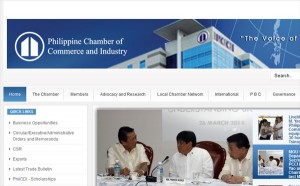International Finance Corp., the private sector funding arm of the World Bank group, will team up with Davao-based Rizal Microbank to boost lending to small farmers with the goal of creating jobs and reducing poverty in Mindanao.
Rizal Microbank is a thrift bank owned by Rizal Commercial Banking Corp. where IFC, in turn, has invested $150 million in equity to help increase lending to small and medium enterprises, including those headed by women entrepreneurs.
“IFC will be working with Rizal Microbank to gain a better understanding of the financing need, repayment capacity, and risk profile of agricultural value-chain players so that the appropriate financial services can be offered to them,” said IFC resident representative Jesse Ang in a press statement.
“This will improve access to credit in the farming sector, where financing is very limited, and help create more jobs and lift people out of poverty,” he said.
Under the arrangement, IFC will advise Rizal Microbank on better understanding the financing needs and risk profiles of agricultural suppliers, traders, and service providers with the aim of expanding lending to farmers.
Rizal Microbank has so far disbursed 12,000 loans amounting to more than P1 billion to clients including dealers of seeds, fertilizers, machinery and agrichemicals, farm produce traders and processors, and postharvest facility providers, in Mindanao and southern Luzon in its four years of operation, with loans ranging from P50,000 to P1 million.
IFC plans to help Rizal Microbank improve its capacity and risk management to make quicker and better decisions in approving loans for agricultural suppliers, traders and service providers. The bank will later explore lending directly to farmers after gaining a better understanding of the risks involved.
Maria Lourdes Pineda, president of Rizal Microbank, said: “IFC’s technical know-how will accelerate our efforts in increasing lending to agricultural players such as suppliers, traders, processors, and postharvest facility providers. Most of them are small enterprises.”
“Our bank sees great potential in Mindanao’s agricultural sector, which contributes significantly to the country’s total agricultural output,” she said.
IFC’s agrifinance program focuses on raising the declining productivity of farms, which comprise a third of the country’s usable land and where one in three employed Filipinos earn a living. Since banks usually allot only 5 percent of their total loans to agriculture, this program, which is supported by funding from Canada, aims to improve access to credit for farmers.
Mindanao is considered the Philippines’ food basket, particularly in terms of rice, corn, coconut, coffee, fruits, vegetables and fisheries products. The entire island contributes significantly to the corn feed, livestock, and poultry subsectors, which increase the gross value of the economy by 37 percent.
The Philippine agribusiness sector employed a third of the country’s workforce, or around 13 million people but contributed only 11 percent of the country’s gross domestic product in 2012. Agribusiness growth declined to 2.9 percent in 2012 from 4.9 percent in 2007, causing three times more families to join the ranks of the poor in the farming sector as compared with other sectors.


